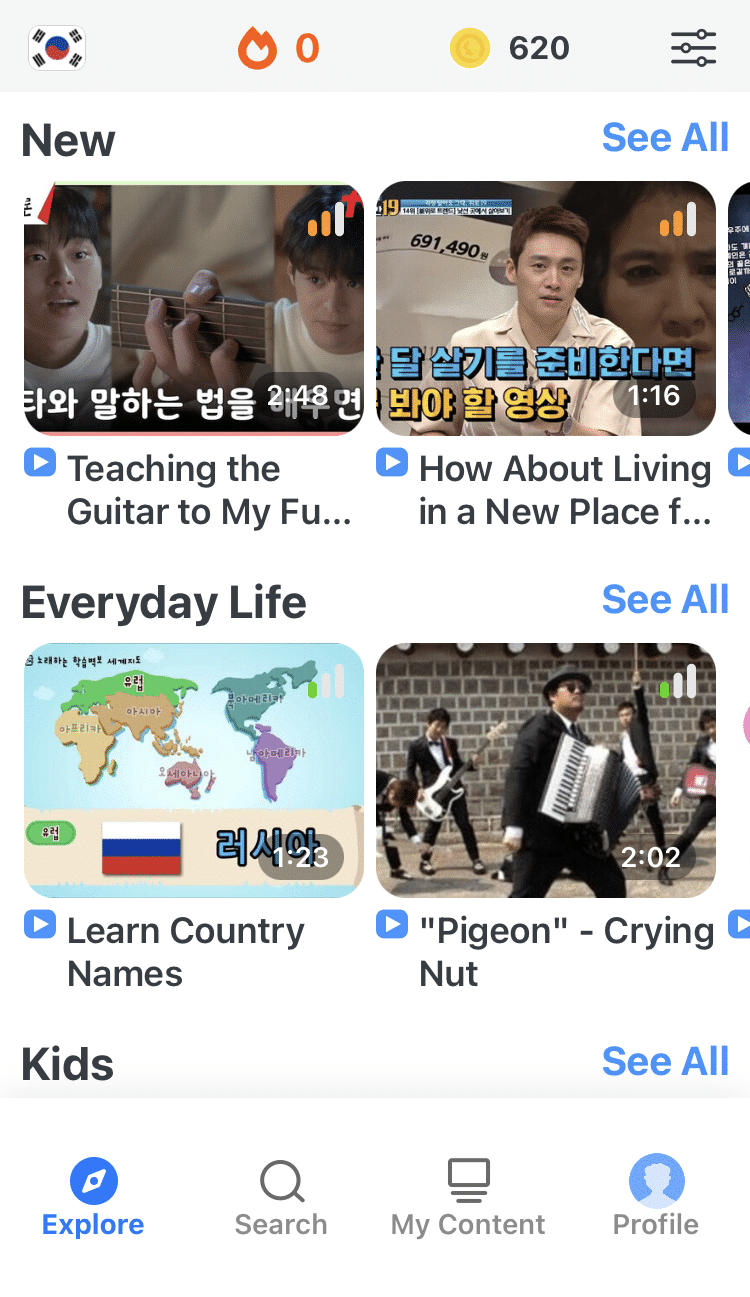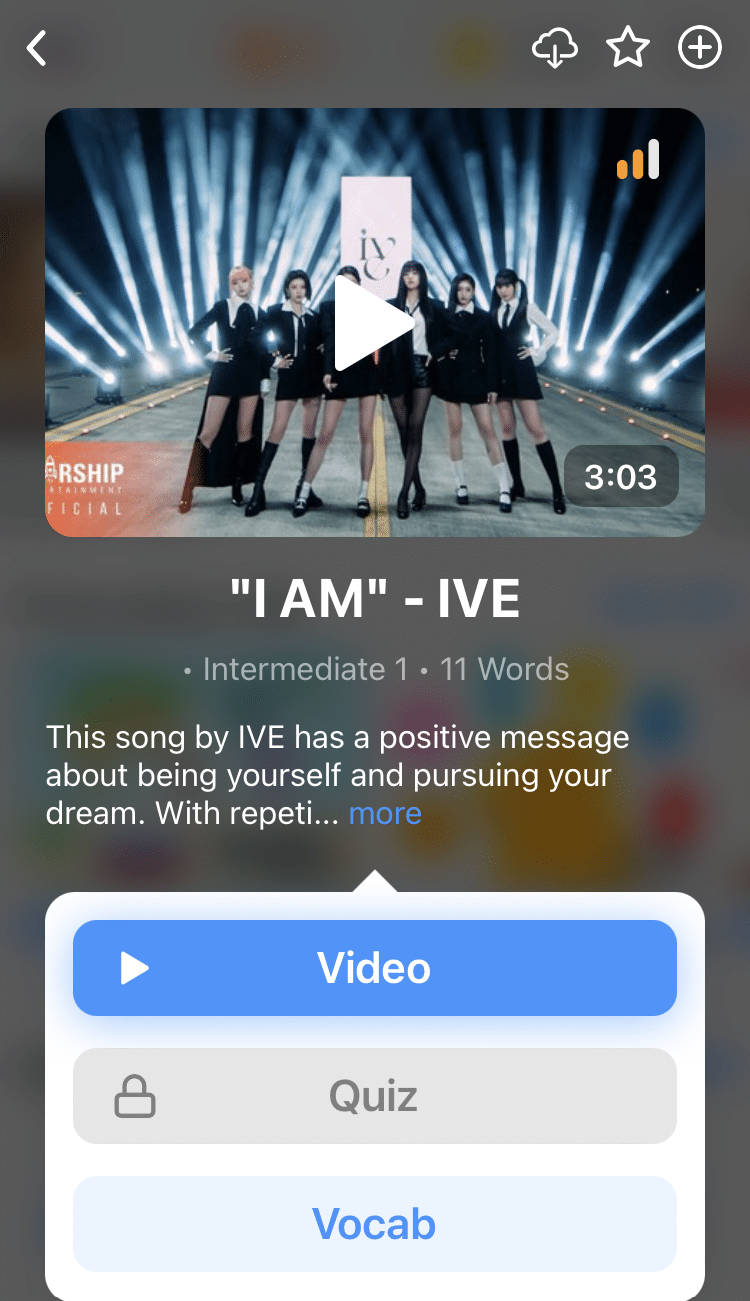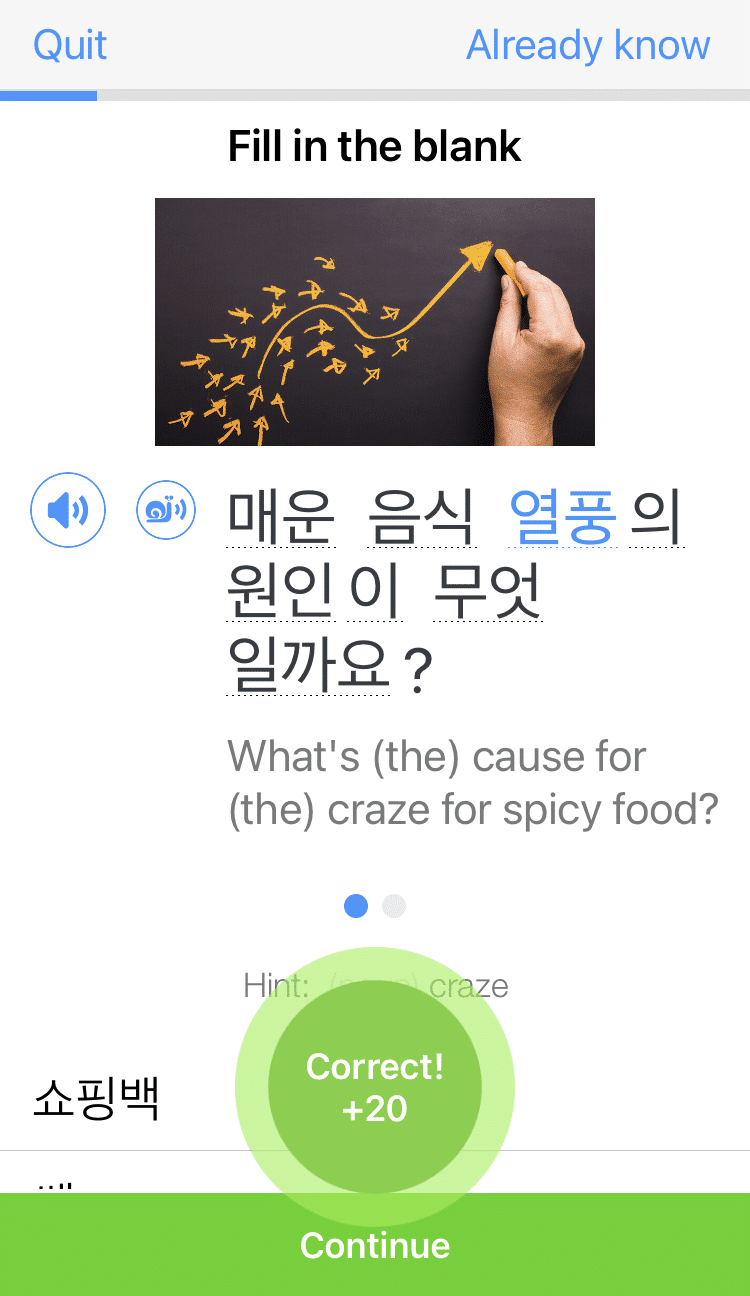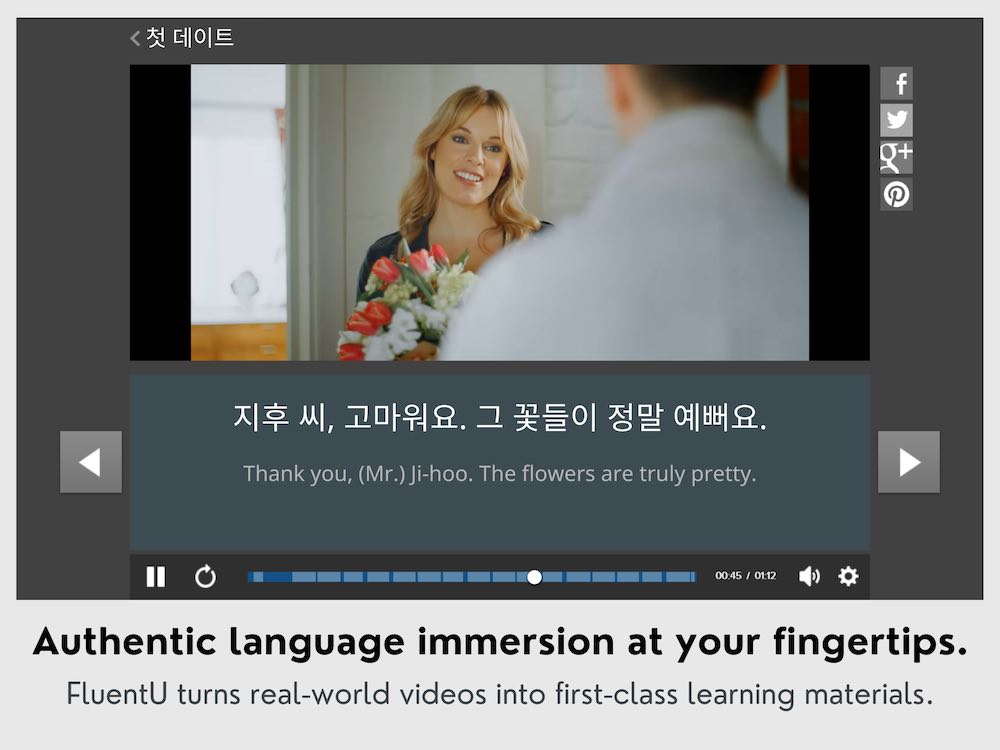
Is Korean Hard to Learn?
According to the Foreign Service Institute (FSI), Korean is a Category V language. That means it’s classified as “super-hard.”
However, even though Korean is unique from English in most ways, the language itself is quite systematic. Once you know the foundational rules, you can progress steadily and consistently without too many hang-ups.
I’ve brainstormed all the reasons why Korean didn’t feel like a major challenge for me to learn—hopefully they’ll give you motivation to keep plugging forward with the language.
Contents
- 1. The Hangul alphabet can be learned in a few days
- 2. Korean word order is unique, but very logical
- 3. Korean pronunciation is straightforward
- 4. Korean honorifics and politeness levels are tricky, but you can mostly rely on the “safe” one
- 5. Plenty of loan words from English
- 6. You’ll never get bored with the learning material
- And One More Thing...
Download: This blog post is available as a convenient and portable PDF that you can take anywhere. Click here to get a copy. (Download)
1. The Hangul alphabet can be learned in a few days
By far, one of the greatest blessings of the Korean language that most learners will come to love is the writing system.
The Hangul alphabet has been globally revered as the most efficient written language system. This makes sense, since back in the day, Hangul was originally made to be easily learned by the common people who otherwise couldn’t read.
Hangul consists of 24 letters, each one easy to distinguish and write. The appearance of the characters can also be matched somewhat intuitively to their phonemes. Many learners can grasp the entire alphabet in a matter of hours or a few days.
Hangul | The Korean Alphabet | FluentU Korean
If you want to learn Korean, the best place to start is with the Korean alphabet! Hangul is a super straightforward writing system, so read this guide to find all about…
Check out this YouTube video from Korean with Miss Vicky to learn about just how easy Hangul is:
2. Korean word order is unique, but very logical
The basic Korean sentence structure follows a Subject-Object-Verb order. Compare this to English’s typical Subject-Verb-Object. It might take a bit to get used to the change, but this is just a matter of familiarity that you can ease into with steady practice.
Korean Sentence Structure and Word Order Patterns | FluentU Korean Blog
With Korean sentence structures there are three main patterns that you need to know, with the most important being Subject-Object-Verb (SOV). Read this guide to essential…
Another factor that can complicate matters are grammatical particles. Particles, or markers, are little word additions that define the function of a noun in a sentence. They tell if something is the subject or object. There are multiple ones to memorize in Korean, which can take some time.
Korean Particles | FluentU Korean
Learn the most common Korean particles. This guide introduces 은/는 (topic particles), 이/가 (subject particles), 을/를 (object particles), 와/과/랑/이랑/하고…
A third aspect that can be a bit tricky is spacing between words. It’s not the most important thing to consider, but it can still be a bit cumbersome when you’re practicing reading and writing. Indeed, many Korean natives don’t even follow the proper rules!
3. Korean pronunciation is straightforward
Many Korean phonemes are pretty similar to English ones, but there are a few exceptions. In particular, Korean double consonants and diphthongs don’t have exact English phoneme equivalents. Romanization of Korean words also falls somewhat short in capturing the accurate pronunciation.
But good pronunciation is very attainable–it’s all about listening. As you constantly hear Korean native speech, you’ll know how to make the proper mouth articulations to get the sounds just right.
Luckily, Korean is not a tonal language. The pitch of your voice and your accent won’t affect the meaning of what you say. This means that Korean pronunciation rules are quite consistent.
4. Korean honorifics and politeness levels are tricky, but you can mostly rely on the “safe” one
I won’t lie, these two things are pretty nuanced. Honorifics shouldn’t take you too long, but politeness levels can get complicated fast.
In Korean, how formal you are affects sentence structure, and formality changes depending on who you are in relation to who you’re speaking to.
There are seven speech levels in total. The “safe” method is to speak using the “neutral” formality level, which can get you through most everyday situations.
But you can breathe a sigh of relief, because learners don’t really have to learn all the intricacies of every politeness level. It’s mainly three or four different levels that you should focus on, each of which are quite distinct and recognizable.
5. Plenty of loan words from English
You’ll be pleased to know that Korean has plenty of loan words from English! Such vocabulary is present in all situational contexts, whether it’s public transportation or furniture shopping.
They’re most prominent in the fields of technology and pop culture, but overall, the number of English loanwords in the Korean language is generally expected to keep growing over time.
Plus, it’s not too hard to pronounce English things using Korean letters/phonemes. In this way, it’s likely that a native would still understand you.
6. You’ll never get bored with the learning material
Nowadays, Korean is a very popular language to learn. Its appeal has been buffed as interest in Korean products (particularly food and media) continues to grow worldwide.
This means that there are many resources available for Korean language learners of all levels. These could be official language learning tools (such as textbooks and online classes) to less formal materials (like K-pop songs and K-dramas). Regardless of what you learn from, it’s guaranteed that you’ll find and enjoy plenty of it.
You can also learn through authentic Korean media with language learning programs such as FluentU.
FluentU takes authentic videos—like music videos, movie trailers, news and inspiring talks—and turns them into personalized language learning lessons.
You can try FluentU for free for 2 weeks. Check out the website or download the iOS app or Android app.
P.S. Click here to take advantage of our current sale! (Expires at the end of this month.)
So, to reiterate: is Korean really that hard to learn?
Forget the scary calculated numbers and labels, because they don’t mean much. Your learning experience will be entirely your own.
With the right level of commitment and educational resources, you can overtake what makes Korean difficult faster than you’d expect.
If you remain curious and diligent, then fluency is always within reach.
And One More Thing...
If you enjoyed this post, you're already halfway to having the time of your life learning Korean with FluentU!
FluentU makes it possible to learn with K-pop videos, funny commercials, entertaining web series and more. Just a quick look will give you an idea of the variety of FluentU videos on offer:

FluentU really takes the grunt work out of learning languages, leaving you with nothing but engaging, effective and efficient learning. It's already hand-picked the best videos for you (which are organized by level and topic), so all you have to do is simply choose any video that strikes your fancy to get started.
Each word in the interactive captions comes with a definition, audio, image, example sentences and more.

Access a complete interactive transcript of every video under the Dialogue tab, and easily review words and phrases from the video under Vocab.

You can use FluentU’s unique Quiz Mode to learn the vocabulary and phrases from the video through fun questions.

FluentU keeps track of what you're learning, and tells you exactly when it's time for review, giving you a 100% personalized experience.
Review sessions use video context to help embed the words in your memory.
Start using the FluentU website on your computer or tablet or, better yet, download the FluentU app from the iTunes or Google Play store. Click here to take advantage of our current sale! (Expires at the end of this month.)



